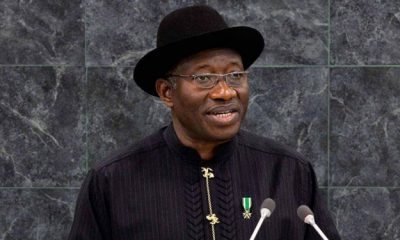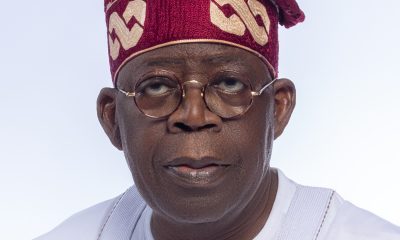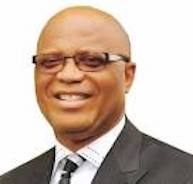Foreign News
ECOWAS Leaders Adopt Jonathan’s Recommendations on Way Forward in Mali
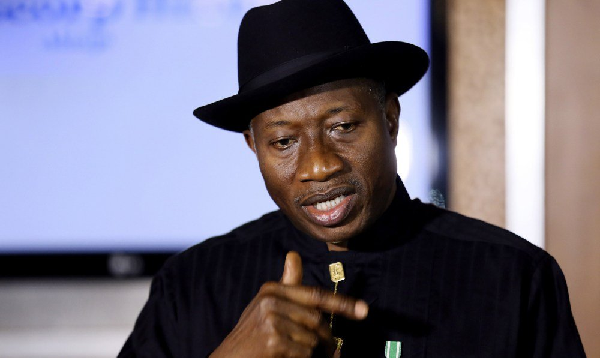
Leaders of the Economic Community of West African States (ECOWAS) have adopted the recommendations of its mediator in Mali and Nigeria’s former President, Dr Goodluck Jonathan, concerning the lifting of economic sanctions on the country.
in a document obtained by the News Agency of Nigeria (NAN), in Abuja, Jonathan’s six-point recommendations was adopted after his presentation to ECOWAS leaders at the 61st Ordinary Summit in Accra Ghana on Monday.
Jonathan’s recommendations were expected to pave the way for the implementation of a new 24 month transition period and the final resolution of Mali’s protracted sociopolitical crisis.
Jonathan had in a briefing last weekend recommended to the authority of Heads of State and Government to lift the economic and financial sanctions imposed on Mali.
This came after Mali’s military rulers proposed a 24-month transition to democracy to terminate in March 2024 and enacted a new law for its implementation.
In adopting the mediator’s six-point recommendations on the way forward in Mali the ECOWAS leaders in the communique issued in Accra after the 61st Ordinary Summit pronounced that the sanctions would be lifted immediately.
The outgoing ECOWAS Commission President Jean Claude Kassi Brou told a news conference in Accra that following the directive for the lifting of the sanctions, borders with Mali would be reopened and regional diplomats would return to Bamako.
Brou, however, stated that the heads of state decided to maintain individual sanctions, which targeted members of the ruling junta and the transitional council as well as the suspension of Mali from ECOWAS institutions, until the return to constitutional rule.
According to Brou, Malian authorities have taken steps in passing the electoral accord and in setting up a monitoring mechanism for transition.
He said that the authorities had also taken steps to prepare a new constitution for the country.
Jonathan who was appointment in 2020 as mediator in Mali has made frequent trips to Bamako to engage the military authorities and encourage them to initiate and successfully complete a programme of transition to democratic rule.
Just before the summit Jonathan visited the country to hold further consultations with the authorities and assess the measures already taken and their commitment to resolutely advance the process of returning the country to constitutional rule.
Some of the mediator’s six recommendations which were adopted by the leaders include recognising the steps taken by Mali towards the restoration of constitutional rule and lifting the financial and economic sanctions reimposed in January 2022.
Others include working with the international community and Mali’s development partners to extend technical, material and financial support necessary for the successful completion of the electoral process as well as welcome the steps
Johnathan, speaking at the ECOWAS 61ST ordinary summit of the authority of heads of state and government Accra, GHANA on Monday, recalled that after ECOWAS Extraordinary Summit held on 4 June, said there were clearly reflective of Mali’s commitment to decisively move forward the process of returning the country to constitutional rule with the support of ECOWAS and other partners.
Jonathan, who said that he had remained in close contact with the ECOWAS-mandated Transition Local Follow-up Committee, said that the Mali authorities briefed him on the steps they had taken since the Summit to pave the way for the organization of elections.
This according to him followed the proposal and plea that the Transition would be brought to an end by March 2024, at the latest.
“Subsequent to these consultations, additional measures were taken that consolidated the progress made.
“In this respect, I would like to highlight the adoption of the draft electoral law by the National Transitional Council (CNT) on June 17 and its promulgation on 24 June.
“It establishes the Independent Authority for the Management of Elections (AIGE), whose membership will also include representatives of political parties and civil society.
“The process for the appointment of members and operationalization of its structures at national and local levels is expected to be completed by early August.”
Jonathan disclosed that the electoral law, which is a central piece of legislation for holding elections, was widely welcomed by both the political class and the signatory movements to the 2015 Peace and Reconciliation Agreement.
“This is significant given the level of polarization that has characterized Mali’s political landscape in recent months,” Jonathan said.
He added that further legal work was planned, including on the country’s administrative reorganization, the political parties’ charter, and on equal access to the media and on the redistribution of the seats at the National Assembly.
Jonathan said that throughout the discussions, both the Transition President and the Ministers emphasized their commitment to ensure full return to constitutional rule by March 2024.
“They also expressed their expectation that, once an agreement is reached with ECOWAS, the sanctions imposed on Jan. 9, 2022 will be lifted,” Jonathan said.
He, therefore, recommended that the Summit: welcome the steps taken by Mali towards the restoration of constitutional rule and urge the Transition authorities to stay the course, keeping in mind that the Transition shall in no way extend beyond March 2024;
He also recommended the Summit agree with the proposed robust monitoring mechanism as supplemented by regular visits of the Mediator and the reactivation of the Transition Monitoring and Support Group;
“Consider lifting the financial and economic sanctions imposed on 9 January 2022, while the subsequent lifting of Mali’s suspension from ECOWAS and of the individual sanctions would be contingent upon further progress against the electoral chronogram;
“Urge the Malian authorities, building on initial steps taken, to promote consensus and inclusivity throughout the electoral and reform process and create conditions conducive to credible and transparent elections;
“Call on all of Mali’s Development Partners to extend the technical, material and financial support necessary for the successful completion of the electoral process, and request African countries from within and outside the region to contribute to the funding of the electoral process in the spirit of African solidarity;” among others(NAN)
Foreign News
French Butchers’ shops Closed After Child Dies of Rare Illness

Authorities in northern France have shut two butcher’s shops after several children were hospitalised and one died from a rare illness thought to be linked to infected meat products.
Investigators found that most of the children had eaten meat from the shops in Saint-Quentin, the prefecture announced on Friday.
The children aged between one and 12, eight children from the town of 53,000 inhabitants and surrounding area were hospitalised in the past week with severe diarrhoea.
Five developed haemolytic uraemic syndrome (HUS), a rare form of acute kidney failure, from which a 12-year-old child has died.
HUS usually occurs in children as a result of an intestinal infection, it leads to the formation of blood clots that block the brain, heart and kidneys in particular.
Up to 165 cases of children with HUS syndrome are documented in France each year.
The authorities urged residents not to consume meat products bought in the closed shops until laboratory tests have proven the cause of the illness beyond doubt.(dpa/NAN)
Foreign News
Over 650 Die in Iran After First Week of Israeli strikes
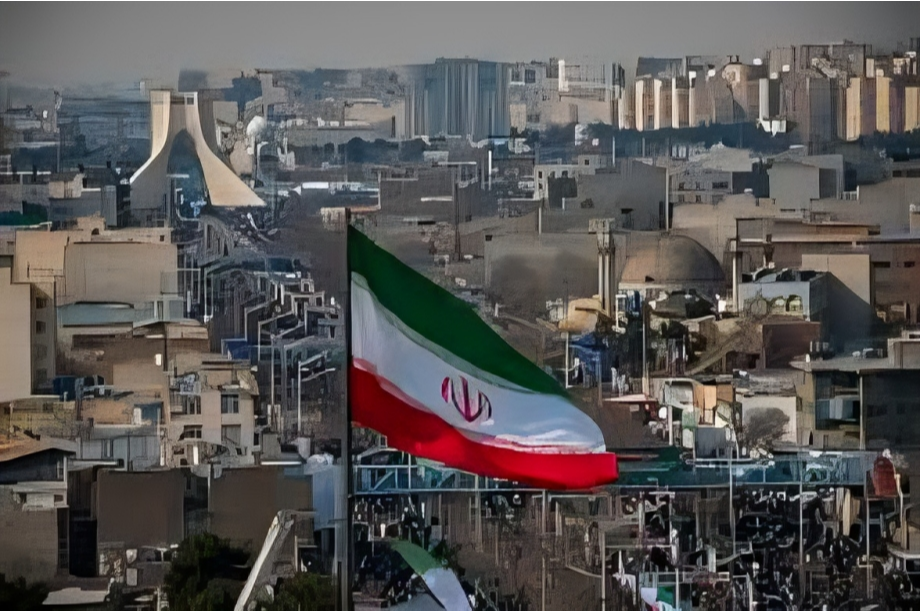
More than 650 people have been killed in Iran following a massive Israeli bombing campaign launched a week ago, an activist group said on Friday.
The U.S.-based Human Rights Activists News Agency (HRANA) reported that 657 people have died and 2,037 have been injured in the nationwide airstrikes.
The Iranian government does not publish daily figures on casualties.
HRANA relies on a broad network of informants and publicly available sources.
The group said the dead include at least 263 civilians and 164 members of the military.
Another 230 fatalities remain unidentified.
The network also reported damage to civilian infrastructure, including a projectile striking a children’s hospital in Tehran, which did not result in any injuries.
In the western province of Ilam, a fire station was damaged, HRANA said, while an Israeli attack on a car factory in western Iran triggered a large fire.
Israel maintains its objective is to prevent Iran from acquiring nuclear weapons, which it considers an existential threat. (dpa/NAN)
Foreign News
China to Eliminate Tariffs on Imports from African Countries

China has announced the full removal of tariffs on imports from all African countries, ENA, a partner of TV BRICS, has reported.
The tariff elimination falls under the new China-Africa Economic Partnership for Shared Development, a framework designed to accelerate Africa’s integration into global trade by increasing market access, improving customs procedures, and strengthening institutional trade capacity.
The initiative is part of a broader effort by Beijing to support industrialisation, diversify imports, and reinforce economic links with African states beyond raw materials.
President Xi Jinping reaffirmed China’s readiness to welcome all African exports under zero-tariff treatment.
He emphasised that the new arrangement would be accompanied by enhanced cooperation in customs, quarantine, logistics, and capacity building.
China also pledged to support training programmes and expand the visibility of high-quality African goods in the Chinese market.
In 2024, China–Africa trade reached nearly 300 billion dollars, consolidating China’s position as Africa’s largest trading partner.
Observers note that the new tariff policy may further strengthen the African Continental Free Trade Area by encouraging intra-African production and export diversification.
The strategic shift is expected to unlock new opportunities for value-added goods and services from across the continent, reinforcing Africa’s role in global supply chains. (TV BRICS/NAN)





